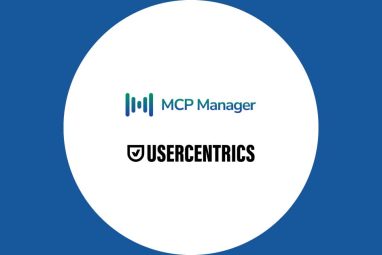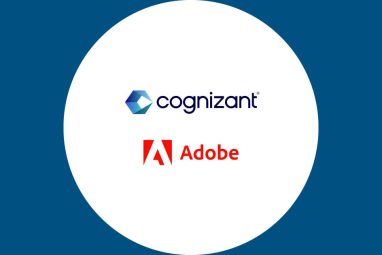MarTech Acquisitions Are On the Rise. What Next?
Merger and acquisitions have been an on-going trend of 2018-2019 in MarTech. Tech giants have grabbed solutions providers by the handful and MarTech guru Scott Brinker thinks that 25 per cent of the existing MarTech landscape will “euphemistically consolidate” within this next 12-18-month period. According to David Raab, the most recent acquisitions – Salesforce and […]
Merger and acquisitions have been an on-going trend of 2018-2019 in MarTech. Tech giants have grabbed solutions providers by the handful and MarTech guru Scott Brinker thinks that 25 per cent of the existing MarTech landscape will “euphemistically consolidate” within this next 12-18-month period.
According to David Raab, the most recent acquisitions – Salesforce and Tableau, Google and Looker, and Intuit and Origami Logic, are not serving the same purpose. “Sure: each of these vendors is striving to offer products based on advanced data management and analytics. Intuit is focused on the data management foundation while Google Cloud and Salesforce are focused more on analytics. All are acknowledging that it’s easier to buy mature technology than to build it from scratch. But of the three buyers, only Salesforce is a MarTech vendor, and their purpose is explicitly to serve customers outside the MarTech user base. So whatever these deals prove, it’s not that business intelligence is the latest MarTech must-have.”
Forbes quotes Adam Wilson, CEO of Trifacta saying, “Salesforce’s USD 15.7 billion acquisition of Tableau and Google Cloud’s acquisition of Looker for USD 2.6 billion are a direct reaction to the torrid pace at which analytics workloads are being moved to the cloud. Machine learning, AI and analytics have become the primary growth opportunities for the cloud today, and we will continue to see significant investments being made in these areas.” Contemplating the next area of focus in the data industry, Wilson adds, “Companies that are solving critical pain points related to data preparation, data quality and data governance including Trifacta, Alteryx and Talend will be key players to keep an eye on as the data industry continues to grow exponentially and more workloads are moved to the cloud.”
Whether the emergence of new technologies is expanding the landscape, or the merger and acquisitions are consolidating it, remains to be a topic of debate for the MarTech experts to discuss. But the truth is that many tech vendors have been acquiring (relatively) smaller vendors to further their suite of offerings. Let’s take a look at some of the top MarTech acquisitions of recent times.
List of Top MarTech Acquisitions in the Last 12 Months
Salesforce Acquires Tableau
In a move that surprised many of us, SaaS provider Salesforce shelled out USD 15.7 billion for data analytics firm Tableau. Salesforce has been diversifying beyond CRM for quite some time now, and although it missed out on the LinkedIn deal (Microsoft picked up LinkedIn in 2016 for USD 26 billion), it has been strategically acquiring data, analytics, and cloud computing firms.
In 2018 itself, Salesforce acquired Attic Labs to add to its data storage technology in January, then in March building upon its Demandware acquisition, Salesforce bought CloudCraze, firmly establishing itself in e-commerce.
Also Read: Accenture Interactive to ‘Reinvent Agency Model’ with Droga5
In May 2018, Salesforce added Mulesoft to its kitty for a USD 6.5 billion, thereby strengthening its marketing cloud solution. Immediately in July 2018, Salesforce acquired marketing intelligence and analytics firm Datorama, not only bolstering its marketing cloud but also competing with Adobe in the same space.
Salesforce ended 2018 on a high with a relatively small acquisition – interactive marketing services provider Rebel – which also adds to Salesforce’s marketing and commerce cloud platforms.
Google Acquires Looker
A week before Salesforce announced its latest acquisition, tech giant Google bought data analytics firm Looker for USD 2.6 billion to strengthen its Cloud platform. And that is Google’s fourth acquisition just this year!
Earlier in March, Google added German video sharing startup Nightcorn to YouTube, in February it acquired Israeli big data and cloud migration startup Alooma, adding it to its Google Cloud, and before that, in January, Google acquired Superpod, a question and answer app to add to its Google Assistant services.
SAP Acquires Qualtrics
There was some high-end drama as 2018 drew to a close when SAP made an eleventh-hour deal to buy Qualtrics for USD 8 billion, just before the latter could file for an IPO. Qualtrics, experts say, is helping SAP advance its experience management solutions. In April 2018, SAP acquired sales performance management tool CallidusCloud, consolidating it within the SAP Hybrid cloud portfolio.
Also Read: Netcore Acquires AI Chatbot Start-up Quinto.ai
Adobe Acquires Marketo
November 2018 brought the news that Adobe was acquiring Marketo for USD 4.75 billion, said to be the biggest deal in Adobe’s history. And this came on the heels of Adobe acquiring Magento in May 2018 for USD 1.68 billion. With Marketo’s lead management, account-based marketing and attribution technology, Adobe enhanced the analytics, and content solutions provided by its Experience Cloud.
In 2018, Adobe made two more acquisitions, both in April – voice assistant technology provider Sayspring, adding its abilities to Alexa, and video AI startup Uru that can embed ads in videos.
Microsoft Acquires GitHub
Although a lot of developers were unhappy with the tech giant for taking over a leading software development platform for a whopping USD 7.5 billion price, Microsoft has so far kept its promise of operating GitHub independently as a business. Although GitHub was its most significant acquisition in 2018, Microsoft also acquired eight other technology solutions and providers in 2018.
Of these, four were AI startups, namely Semantic Machines, Bonsai, Lobe, and XOXCO. To this Microsoft added Express Logic in April 2019, a leader in real-time operating systems (RTOS) for IoT and edge devices. This seems like a steady investment in enhancing its conversational AI and voice technology Cortana. Will Cortana compete with Amazon’s echo and Alexa technology in the near future? It remains to be seen.
Oracle Acquires Datafox
In November 2018, Oracle announced that it was acquiring Datafox. With its cloud-based artificial intelligence (AI) data engine and derived business content, Datafox enhances Oracle’s Cloud applications, as well as adds to its AI capabilities. This acquisition added to Oracle’s other acquisition in May 2018 – DataScience, cloud workspace platform that provides machine learning solutions. Both acquisitions added to Oracle’s SaaS and PaaS offerings, which includes big data, analytics, and security offerings.
Also Read: Data Helps Marketers Create Messages and Conversations That Are Personalised
Acquisitions and Consolidation of MarTech Solutions
Scott Brinker believes that there’s growing competitive pressure for “who will amass the biggest and best ecosystem. They’re (Adobe, Hubspot, Salesforce, Oracle, etc.) motivated by the virtuous cycle that successful platforms can achieve. A large ecosystem attracts more customers, and more customers attract a larger ecosystem. Stable platforms reduce the cost and risk of adopting third-party products. This encourages more of them to be adopted and, in turn, more to be developed.”
Brinker thinks that this could result in the market being “effectively consolidated at the platform level, yet splendidly diverse in the number of specialised products available to plug into those platforms”.
So what does this mean for third-party developers? Scott says that while some will be big, with category-leading, horizontally-applicable applications, others will be small and narrowly-focused on more vertical solutions. “You’d have the benefits of stability and plug-in compatibility that good platforms offer, including a common backbone for unifying customer data. But you’d also have the benefits of augmenting those platforms with creative third-party products that best fit your particular business needs, harness the latest innovations and give you the freedom to differentiate in a digital world.”
As far as product/service enhancement and overall consolidation of MarTech solution providers are concerned, the merger and acquisition don’t seem to be slowing down any time soon. There are going to be more mega acquisitions in the near future. There are rumours about Salesforce going after social networking platform Twitter since it lost out on LinkedIn to Microsoft. Stories and gossip aside, there’s no doubt that these tech behemoths will become even bigger, paradoxically expanding the MarTech solutions and consolidating the landscape simultaneously.
What matters, in the end, is that mergers and acquisitions should lead to a better and more in-depth understanding of the customer, for having the best software does not necessarily mean that you automatically become indispensable for the customer.









































































































